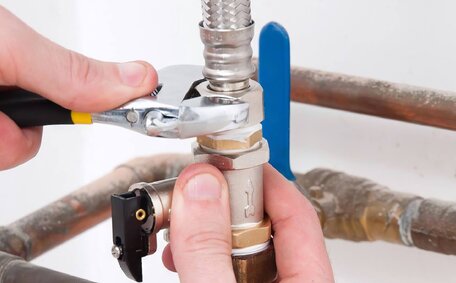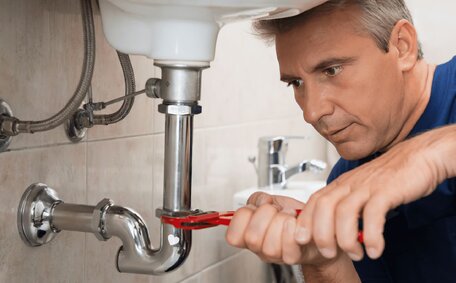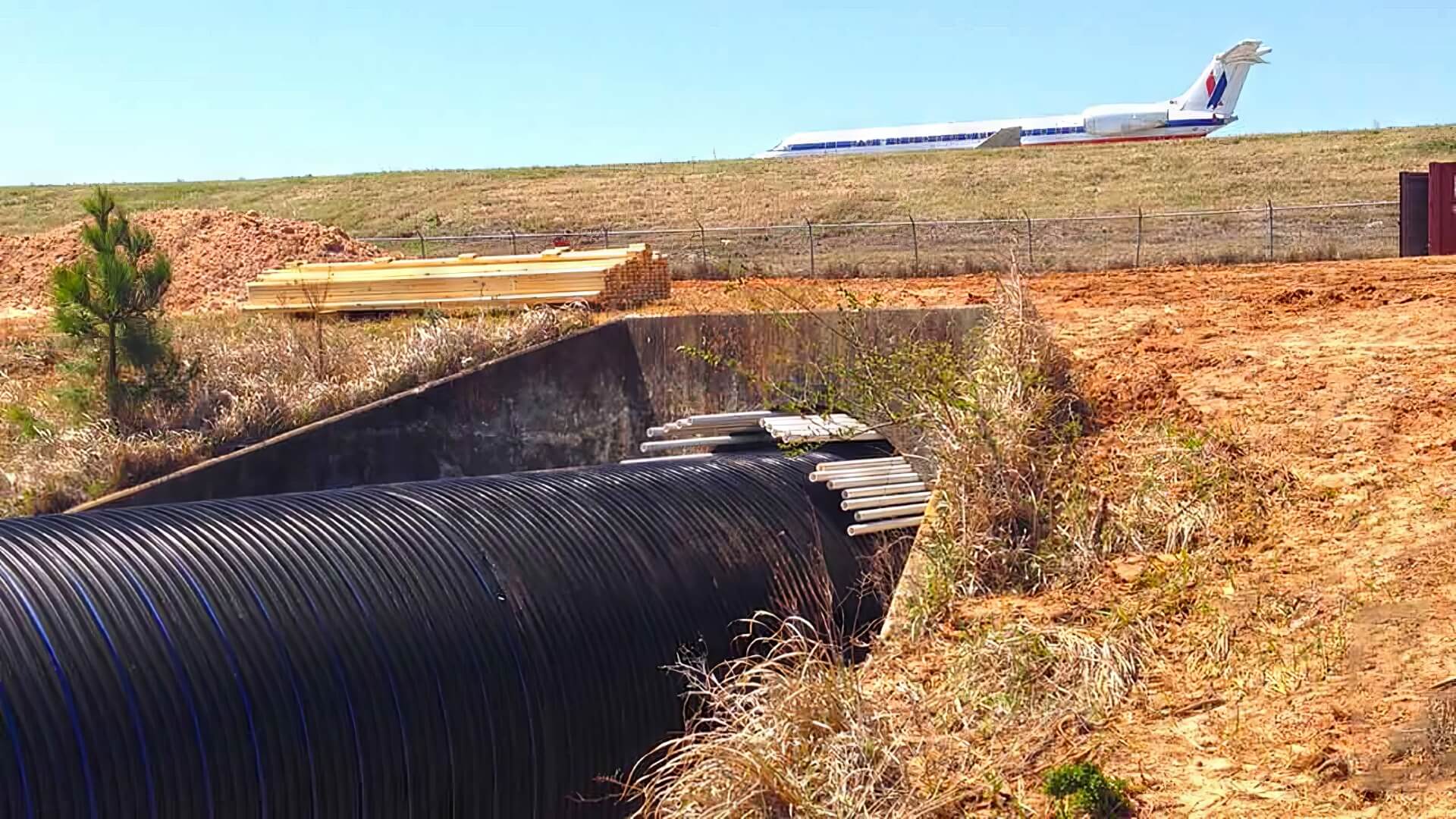
Is a broken tap an emergency?
A broken tap that is causing flooding, water wastage or damage should be treated as a plumbing emergency. Call our 24/7 emergency plumbers for prompt repairs to burst pipes, damaged taps, water leaks and more.
Read MoreClogged drains are an all too common nuisance that can make life in your home feel like a headache. From slow-draining sinks to backed-up pipes flooding your kitchen, dealing with blocked drains is frustrating for any homeowner. But before you reach for the chemical drain cleaners, there are many methods you can try yourself to clear the clog and get your drains flowing freely again.
In this comprehensive guide from the experienced plumbers at North Ryde Plumbing, we’ll walk through proven techniques to effectively clear your blocked drains. We’ll also discuss signs that indicate when it’s time to call in a professional plumber to properly fix the issue.
Whether it’s using simple ingredients like boiling water or baking soda and vinegar, or equipping yourself with a drain snake or plunger, we’ll cover when and how to apply each approach.
A clogged drain doesn’t have to spell disaster. Armed with the right information and a little DIY elbow grease, you can often remedy blocked drains and restore the free flow of water in your home. So read on to learn how to effectively clear the dreaded clogged drain.
There are several common culprits that can lead to clogged drains in your home:
Hair that washes down bathroom drains can accumulate over time and cause a clog. Hair can wrap around pipes and join together to form a thick blockage.
Leftover scraps and grease from cooking can stick to pipes when washed down kitchen sinks. Foods like rice, pasta, and eggshells are especially prone to sticking.
Grease and oily residues from cooking can build up and coat pipes. As grease cools and hardens, it sticks to pipe walls and catches debris.
The fats and oils in soap can react with minerals in water to form a thick, sticky scum that adheres to pipes.
Invasive tree roots near external drainage pipes can force their way inside and cause major blockages.
Things like cotton swabs, dental floss, condoms, tampons, and bandages can easily get flushed down toilets and create clogs.
Hard water rich in minerals like calcium and magnesium can leave mineral deposits inside pipes over time.
Being aware of what causes clogged drains is the first step towards preventing and clearing them. Take steps like installing drain screens, minimising grease, and avoiding flushing trash down toilets.
Here are some common signs that may indicate you have a clogged drain in your home:
If water is draining much slower than usual from your sink, shower, or tub, this is a major red flag for a clog. Drains that used to gurgle as they drained may now be silent.
A clogged drain often produces gurgling sounds as water attempts to pass through the blockage. You may hear bubbling or sloshing noises coming from the pipes.
A blocked drain can lead to the build-up of sewage gases like hydrogen sulphide, which smells like rotten eggs. A clogged kitchen drain may emit a foul, decaying odour.
If you see water pooling around a drain or overflowing from a sink or toilet, this indicates the clog is serious. Water may back up out of one drain as it seeks an escape.
In extreme cases, you may be able to see the clog yourself. Gunk, hair, and debris may be visible through a drain grate or at the bottom of a sink.
Don’t ignore these warning signs - take action to clear clogs before they worsen or cause flood damage. Tackling a clog early is much easier than letting it fully block your drains.
While it’s impossible to prevent all future clogs, there are steps you can take to minimise drain blockages in your home:
Fitting drain screens or stoppers over your sinks, tubs, and shower drains prevents larger items like hair and debris from entering the pipes.
Scraping food scraps into the trash and wiping down oily pans prevents grease buildup. Allow grease to solidify before disposal.
Never flush anything besides toilet paper, including wipes, cotton buds and sanitary items which can snag in pipes.
Pouring a monthly drain maintenance product like baking soda and vinegar down your drains helps break up gunk and keep pipes clear.
Inspect under bathroom and kitchen sinks for leaks, cracks or deterioration that could lead to clogs.
Staying vigilant with minor maintenance can go a long way towards preventing major headaches from clogged drains down the line.
Before reaching for harsh chemical drain cleaners, try some simple homemade remedies first to clear a clogged drain:
Boiling water can help dissolve and dislodge grease blockages. Boil a full kettle of water and slowly pour it down the drain. Repeat several times for tough clogs.
Mix 1/2 cup baking soda with 1 cup vinegar and pour down the drain. The chemical reaction breaks up deposits. Let sit 15 mins then rinse with hot water.
A sink plunger can compress the clog and push it through the pipes. Seal the drain with a wet rag and plunge vigorously 15 times, repeating until the drain clears.
Straighten out a wire hanger and use the end to hook hair or debris clogging a drain. Zip-It plastic tools work similarly for toilet clogs.
Home remedies utilise common household items to break up basic clogs, saving you calling a plumber immediately.
A plunger can be an effective DIY tool for clearing simple sink or toilet clogs. Using a plunger creates suction that helps dislodge and break up blockages.
For sink clogs, use a standard sink plunger that seals over the drain opening. Fill the sink halfway with water and seal the plunger over the drain. Repeat 10-15 times, which creates pressure waves to loosen the clog.
Push the plunger all the way down to compress the air and water in the pipe, then quickly pull up.
For toilets, use a flanged plunger designed to fit snugly around the drain opening at the base of the toilet bowl.
Generously coat the rim with petroleum jelly for a tight seal. Plunge vigorously 8-10 times in quick succession. This compresses the obstruction so it can be flushed down the drain.
Plunging takes muscle work but is inexpensive and uses pressure to attack clogs from above. For deep blockages a drain snake may be needed to clear pipes below the drain.
For clogs that persist deeper down your pipes, a drain snake, also called an auger, can be used. A drain snake is a long, flexible metal cable wound around a spool that can reach further down into pipes.
Feed the drain snake down the drain and twist the handle clockwise while applying light downward pressure. This will advance the cable deeper and the metal coil at the tip can latch onto debris or scrub pipe walls. Crank the handle counterclockwise to dislodge and extract clogs up through the drain opening.
A power drill attachment can also drive the snake automatically with rapid rotation to clear stubborn blockages. Use caution to avoid scratching your pipes. Drain snakes are effective for reaching clogs beyond the bathroom or kitchen drain up to several feet down in pipes.
For novice DIY-ers, manual hand-crank snakes provide added control. But for speed and power to clear very congested pipes, a motorised electric drain snake is recommended. Just take care not to over-crank and always pull back if the snake meets too much resistance.
Chemical drain cleaners available at hardware stores promise to quickly clear clogs using powerful caustic or acidic formulas. However, exercise great caution before turning to chemical cleaners, as they can damage pipes and pose safety risks if mishandled.
Liquid drain cleaner products often contain harsh lye, sulfuric acid, bleach, or other corrosive ingredients designed to break down organic matter. Always wear gloves and eye protection when handling, and only use in well-ventilated areas.
Avoid using liquid chemical cleaners on completely blocked drains, as this can cause the drain to overflow. Only apply cleaners to drains with some water flow. Follow label directions closely.
For stubborn clogs, try safer enzyme or microbial drain cleaner products first. Enzymes break down organics naturally over time. Consider calling a professional plumber for serious drain issues instead of relying on caustic chemicals.
Chemical drain cleaners can be effective but require great care. Improper use risks dangerous fumes or chemical burns. Exhaust all other options before turning to harsh chemical cleaners to clear your drains.
While many minor clogs can be remedied with DIY methods, there are certain situations where calling in a professional plumber is advisable:
If your drain is completely blocked and none of your efforts have restored any water flow, this indicates a severe clog that likely requires a plumber’s expertise.
Standing water that overflows from a sink, tub or toilet signals an advanced clog. Allowing backflow to flood can cause structural damage. Have a professional open the drain promptly.
If you notice sewage gases like rotten eggs or methane coming from drains, this points to an extensive clog and potential septic system issues. Professionals have cameras to inspect pipes.
Clogged exterior drains, downspouts or main sewer lines often run underground. Plumbers have specialised tools like hydro-jetting to clear outdoor drains you can’t reach.
At the first sign of major drain issues, North Ryde Plumbing’s licenced technicians can apply commercial-grade equipment for fast, effective results.
While tackling a clogged drain yourself can save money, there are compelling reasons to call in a professional plumber instead:
Plumbers have commercial-grade equipment like high-powered hydro-jetters and flexible augers that can scour pipes much more effectively than consumer models. They can blast through stubborn clogs in minutes that would take hours of effort DIY.
Plumbers can run mini cameras down your pipes to visualise the clog and pinpoint troublesome areas requiring repair. With the problem in clear view, they know exactly how to fix it.
Professionals don’t just clear the initial clog, they thoroughly clean the entire length of your pipes to remove accumulated gunk and prevent future blockages.
Reputable plumbing companies like North Ryde Plumbing offer 24/7 emergency drain cleaning for flooding or sewage backflow situations where immediate relief is crucial.
Don’t struggle with repeat clogs yourself - North Ryde Plumbing’s experienced technicians have the advanced tools and training to clear any blocked drain quickly and completely in a single service visit. Contact us online or call 1300 349 338 to schedule an appointment for drain cleaning you can count on.
A broken tap that is causing flooding, water wastage or damage should be treated as a plumbing emergency. Call our 24/7 emergency plumbers for prompt repairs to burst pipes, damaged taps, water leaks and more.
Read MoreBurst pipes, blocked toilets, sewer backups and lack of hot water are among the most common residential plumbing emergencies that require urgent attention from a professional plumber. If you experience any of these issues, call our 24/7 North Ryde emergency plumbers right away for fast, reliable service.
Read MoreTo determine if a relined pipe meets safety standards, professionals use equipment like CCTV cameras and hydrostatic pressure tests. Relining pipes is an affordable, non-invasive alternative to full replacement that can extend pipe lifespan 50+ years if done properly.
Read MoreNorth Ryde, 2113 NSW
We will call back as soon as possible.




